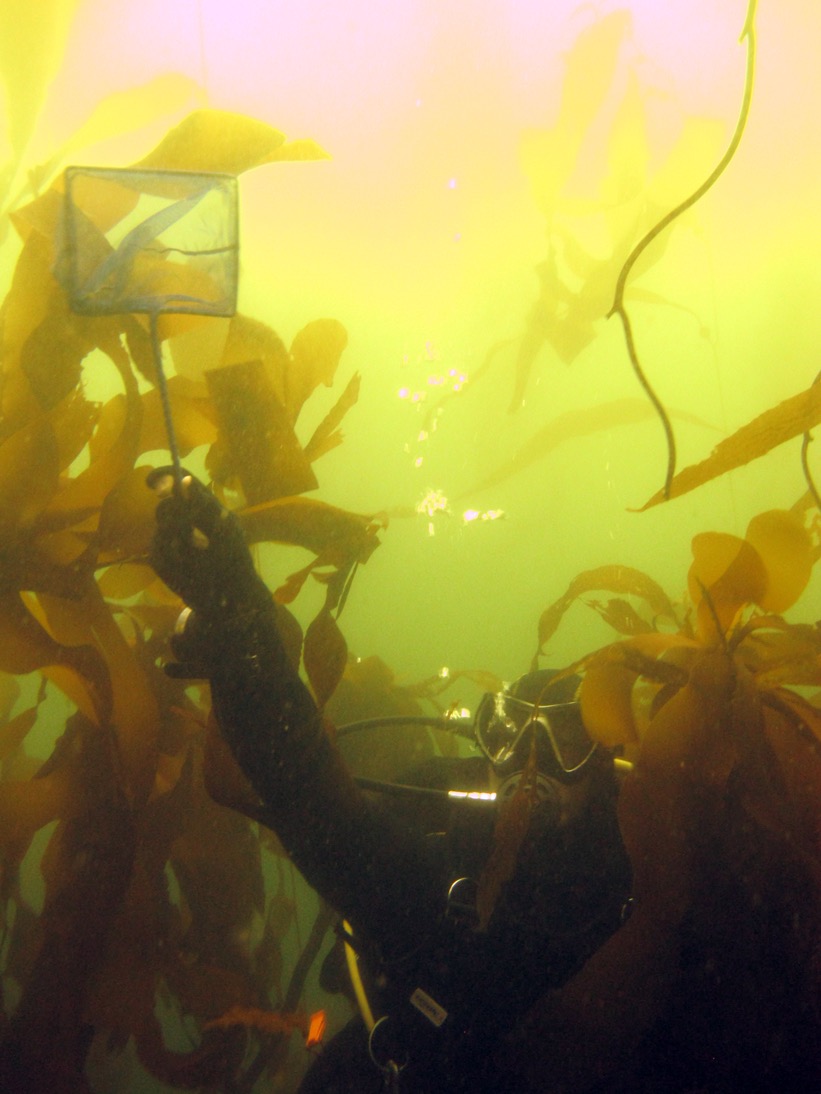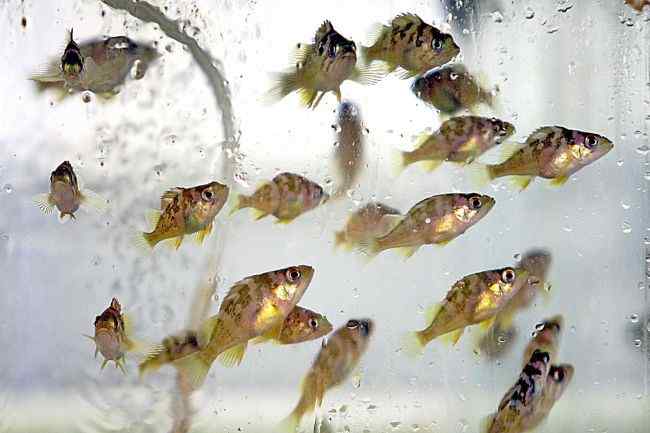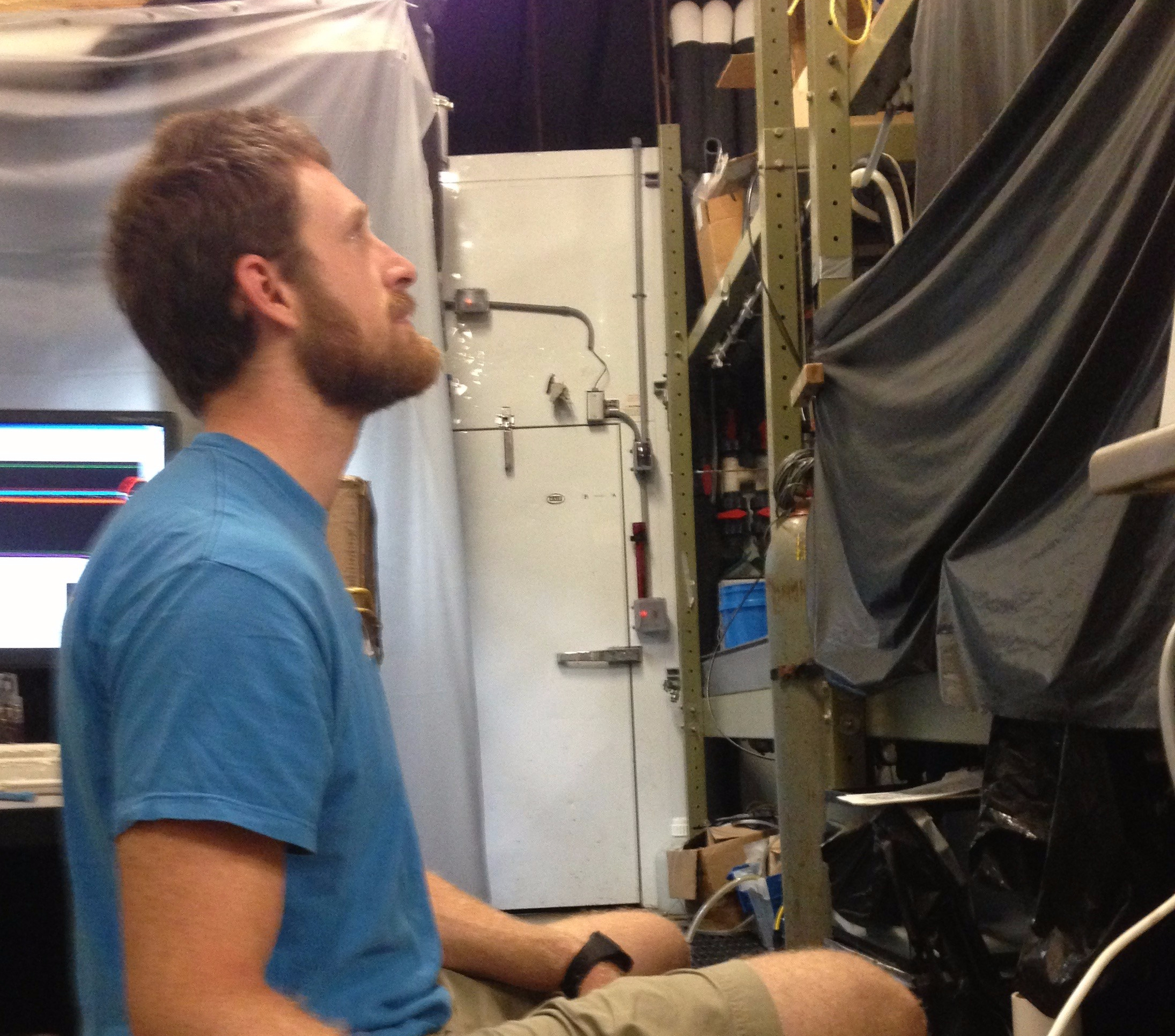
Whether it be out in the field or inside the lab, conducting research is often what people imagine as the highlight of science. However, once that research is completed, then what? For many scientists, it’s the impact of their research that is viewed as a true career highlight. MLML alum, Will Fennie, had his first taste of this success when research from his Master’s thesis contributed to a well-publicized paper on juvenile rockfish and ocean acidification.
Species-Specific Responses of Juvenile Rockfish to Elevated pCO2: From Behavior to Genomics
For this study, Dr. Scott Hamilton, professor of Ichthyology at MLML, served as first author and his student, Will Fennie, served as third author.
Former MLML student Will Fennie gives us the scientific summary of the project.
This study demonstrates that closely related rockfishes exhibit markedly different gene expression, physiological, and behavioral responses to elevated seawater CO2 levels. These findings are exciting because they suggest that even closely related species may respond to climate change differently. Since these two rockfishes react so differently to one aspect of climate change, our work leads to new lines of inquiry about what determines rockfishes responses to elevated CO2 as well as how these species differ in their responses to other climate change stressors.

Former MLML student Will Fennie gives the graduate student perspective about working on this project.
The behavioral and physiological data in this study came from my first summer of CO2 experiments with rockfishes (the gene expression component was done by Dr. Cheryl Logan at CSUMB). My thesis incorporated these data and built upon the interesting patterns I discovered from that first summer. I ended up performing similar experiments on 4 more species of rockfishes the next summer.

This is my first publication. It is exciting and rewarding to know that all the effort I (and many others) put into this study will improve our understanding of how CO2 affects temperate fishes. I remember early in my first year Scott Hamilton sent me a paper by some Australian scientists that showed how increased CO2 affects the behavior of coral reef fishes. I thought it was a really cool experiment and wanted to see if I could run similar experiments on Californian fishes. Seeing my experiments published also reminds me of a question Jim Harvey and Mike Graham posed to my scientific methods class, "Are you a scientist?" After seeing my experiments published, I can confidently answer, Yes I am!
There were many ups and downs of the process. My favorite memories are less about the work and more about the people I got to work with. I would argue that I had some of the best mentors and lab mates because of how much help and support they gave me. I had people come out diving with me to collect fish (probably the most fun part of the project), got to learn from the shop guys when making different experimental "devices", and had visits from my advisor, lab mates, and other MLML students to help break up the monotony 147 day long experiments in MBARI's seawater room (despite the cool technology MBARI has and the fun people working there, I began to think of this room as more of a dungeon near the end of the experiments).
This work inspired me want to learn more about how early life history experiences of rockfishes affect their success at later life stages. This propelled my to jump into a PhD right after I finished my masters.

The above photo explained by Mr. Fennie: Fish were reared in their different CO2 treatments before being placed in a swim flume (provided by Dr. Susan Sogard at NMFS). In the swim flume fish were made to swim against a current that increased by one body length per second every two minutes. The trials ended when a fish could no longer swim against the current. This test gave us a metric for determining how CO2 could affect swimming performance and we found that CO2 decreased copper rockfish swimming speed, but did not affect blue rockfish.
Life After MLML
I am currently a PhD student at Oregon State University working with Dr. Su Sponaugle to understand how oceanographic conditions affect the larval and early juvenile stages of rockfishes. I am trying to understand how the conditions rockfishes develop in affect their growth during their larval stage. I also want to know how larval growth rates affect juvenile rockfish survival. Hopefully this information will give us better insight on how the early life stages of rockfishes will fare as climate change progresses.

